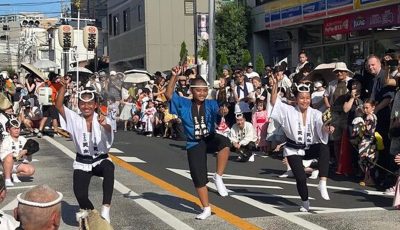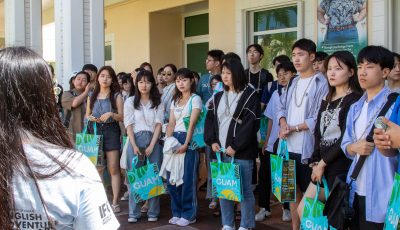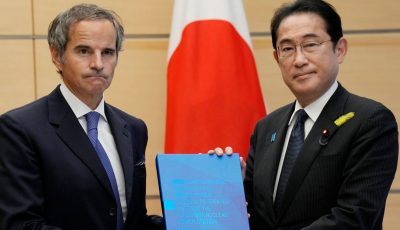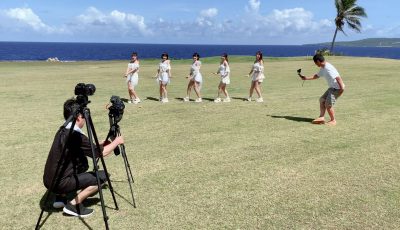Japan lawyer’s group record voices opposing Japan nuclear dump plan
Jun Sasamoto from the Japan Lawyers International Solidarity Association and his wife, Yoku, a filmmaker, arrived in the Commonwealth last March 29, and met with several fishermen and women, some members of the CNMI leadership, and community leaders. They took videos of the people they met expressing their strong opposition to Japan and the Fukushima Nuclear Power Plant’s plan to release millions of gallons of treated nuclear wastewater into the Pacific Ocean for a period of 10 years.
Among those featured in the couple’s videos are Rep. JP Sablan (Ind-Saipan), chairman of the 23rd Saipan & Northern Islands Legislative Delegation, and Rep. Angelo Camacho (Ind-Saipan), chairman of the 23rd House of Representatives Committee on Natural Resources, who have jointly expressed their opposition to the plan.
“Tritium has a lifespan of 12 and half years. …Tritium at its minimum and by itself may not pose a danger, but releasing them in large amount into the water poses a threat to the food we eat and our health,” Camacho stated.
Ana Marie SanNicolas, vice chairwoman of the 19th Tinian Municipal Council, urged the Japanese government to reconsider, saying she grew up in a large family and fishing was and is a part of their lives. “As a mother, I want my children and their children to avail themselves with whatever they can harvest from the ocean,” she said.
Tinian Municipal Council chair Joseph E. Santos expressed similar concern over tritium and its effects on sea life and people’s health.
Fishermen and women from Rota expressed their concern over the dwindling population of fish and are worried that additional stress to an already taxed ocean environment from climate change will completely destroy the sea life ecosystem.
Pacific Alliance of Municipal Councils president Jim Atalig said that Japan needs to listen to the people whose lives will be greatly disturbed by its actions. “They have no right to unilaterally make decisions affecting other people’s lives outside of Japan. The Japanese government doesn’t own the ocean. What about our rights as people whose lives literally and often depend on what the ocean can provide, like during the COVID-19 pandemic?”
Respected elder Lino Olopai and Office of Indigenous Affairs executive director Ross Manglona both expressed disappointment over the total disregard of the Pacific Ocean people’s voices. “There are no border barriers in the ocean that would keep contaminants away from the rest of the world, and the Pacific Ocean places the Commonwealth in the direct path of impact because we share the same ocean,” Manglona said.
Olopai said, “The ocean is a way of life since time immemorial for the Refaluwasch-Carolinians. I don’t understand why our friends in Japan would think that what they will be doing to us is okay. Japan and the Commonwealth share a long history and friendship. How can we maintain a good relationship like this? All of them have two ears, but none of them are using their ears for listening!”
The online symposium that was originally scheduled for April 8, 2023, is now postponed to June 3, 2023, at 2pm, Commonwealth time. The current link to the online symposium is https://zoom.us/j/93887162162. (PR)



























